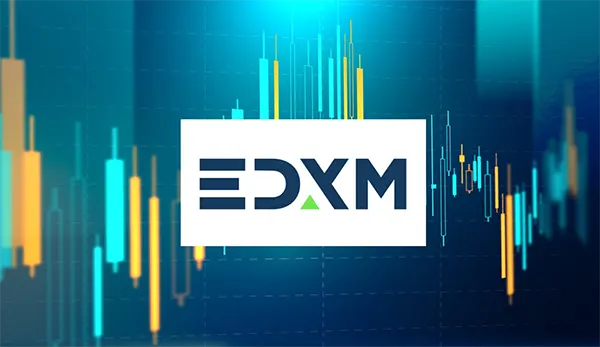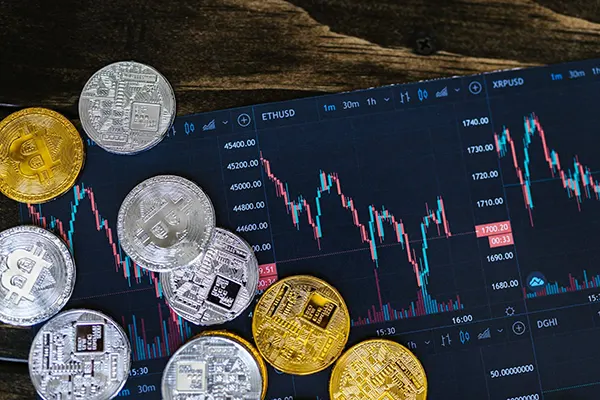
EDX Markets — Wall Street in Crypto: Review of EDX Markets
EDX Markets has quickly become one of the most talked-about names in digital asset trading. Launched in 2023 with the backing of Wall Street giants such as Fidelity, Charles Schwab, and Citadel Securities, the exchange positions itself as a regulated and institutionally trusted venue for cryptocurrency transactions. By 2025, it has already gained traction among professional investors seeking a reliable environment that bridges the gap between traditional finance and digital assets.
The Foundation and Growth of EDX Markets
EDX Markets was built with the idea of providing a trading infrastructure similar to that of established stock exchanges. Unlike many existing crypto exchanges, it does not hold customer funds directly. Instead, trades are matched on the exchange, while custody and settlement are handled by third-party partners. This model reduces risks of hacks and insolvency issues that have plagued several other platforms in the industry.
Since its inception, EDX Markets has focused on attracting institutional participants rather than retail traders. Its emphasis on compliance, transparency, and strong operational security has made it appealing to banks, hedge funds, and brokerage firms. This approach gives it a unique position in a market still recovering from the collapses of poorly regulated exchanges.
By 2025, EDX Markets has expanded its services across multiple U.S. states and is in discussions to extend its reach into European and Asian markets. Its institutional-first model continues to serve as a benchmark for what a regulated digital asset exchange can look like in the future.
Wall Street Influence and Credibility
The credibility of EDX Markets comes largely from its Wall Street backers. Fidelity and Charles Schwab bring decades of experience in brokerage and asset management, while Citadel Securities adds its expertise in market-making. Their involvement reassures market participants that the exchange is designed with long-term stability in mind, not short-term speculation.
This institutional involvement has also encouraged regulatory authorities to view EDX Markets as a safer environment compared to offshore exchanges. With strict compliance controls and auditing procedures, it stands out as one of the few crypto trading venues aligning itself with the highest financial standards.
For professional investors, this credibility translates into confidence. They see EDX Markets as a viable gateway into crypto without compromising the standards they expect from traditional financial markets.
Trading Model and Key Features
The exchange operates on a non-custodial model, meaning clients keep their digital assets with independent custodians until settlement. This structure reduces counterparty risk and prevents the concentration of funds within a single entity. By separating execution from custody, EDX Markets offers a safer approach that mirrors conventional securities trading systems.
Its order matching engine is designed for efficiency and fairness. It supports spot trading for major digital assets such as Bitcoin and Ethereum, with a roadmap to add more assets that meet regulatory and institutional-grade requirements. Unlike retail-focused exchanges, EDX prioritises liquidity depth and stable pricing over speculative trading volume.
Another key element is its focus on settlement transparency. All trades are processed through well-known custodians and settlement banks, ensuring accountability at every stage. This resonates strongly with institutions that prioritise capital protection and operational clarity.
Advantages Over Traditional Crypto Exchanges
EDX Markets differentiates itself by addressing weaknesses that have historically undermined confidence in crypto trading. By avoiding direct custody of client funds, it eliminates a major risk factor. This alone sets it apart from exchanges that collapsed due to mismanagement of customer assets.
Its focus on regulation ensures greater alignment with government policies, providing a smoother path for future expansion. While some competitors face ongoing legal disputes, EDX builds its brand around compliance and transparency, making it more attractive to conservative investors.
Additionally, the exchange benefits from advanced technology borrowed from traditional financial systems. High-speed execution, rigorous risk management tools, and robust reporting systems make it appealing to large-scale institutional users who require efficiency and security in equal measure.

The Future of EDX Markets in 2025
Looking forward, EDX Markets aims to broaden its product range beyond spot trading. Plans include regulated derivatives and tokenised securities, which could transform the way traditional assets are traded on digital rails. If successful, this will further integrate cryptocurrencies into the mainstream financial system.
Another expected development is its expansion into international markets. Partnerships with European and Asian financial institutions are already being explored, reflecting the global demand for a regulated exchange model. This step will be crucial for positioning EDX as a global leader rather than a U.S.-only operation.
By 2025, the exchange also plays a pivotal role in shaping regulatory dialogue. Its collaboration with financial watchdogs contributes to setting industry-wide standards. This not only strengthens its own position but also supports the broader legitimisation of digital assets.
Challenges and Market Competition
Despite its rapid growth, EDX Markets faces significant challenges. Competition from established players such as Coinbase, Binance, and Kraken remains intense, especially as these exchanges expand their institutional offerings. To remain competitive, EDX must continuously innovate and adapt.
Regulation is both a strength and a challenge. While compliance attracts institutions, it also limits the pace of expansion and asset listings. Balancing innovation with regulatory obligations will determine how fast EDX can scale compared to more flexible competitors.
Finally, market volatility remains an external factor. Even the most secure and compliant exchange cannot control price swings in Bitcoin or Ethereum. However, by focusing on trust and institutional reliability, EDX aims to mitigate risks that could otherwise undermine investor confidence.
